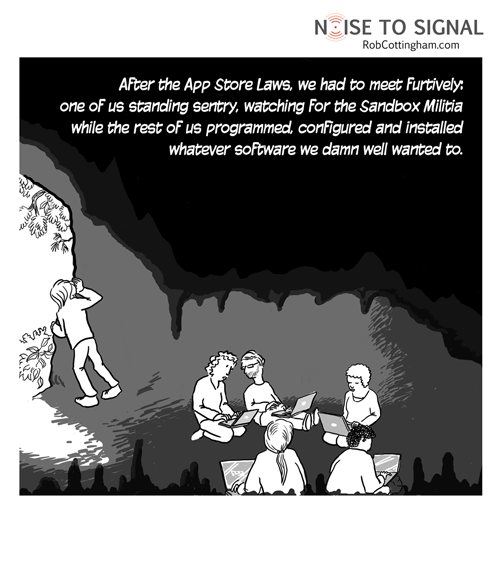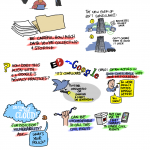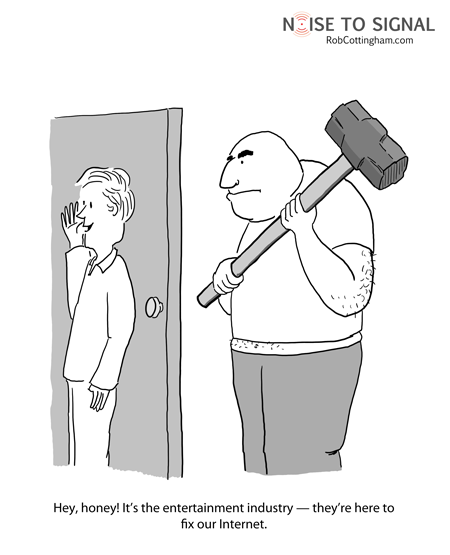(I reeeealllly want to pitch this to Roland Emmerich.)
I get the appeal of the App Store worldview. I really do. For users, it’s knowing that every piece of software on your device has been vetted – and having a simple, trusted way to manage it.
And Apple’s App Store is a thing of grace and beauty, as you’d expect from Apple. It’s a pleasure to use.
But it’s a gilded cage. Apple isn’t just deciding what’s safe for your device. They’re deciding what will and won’t be to their business advantage. They’re deciding which areas of functionality they’re willing to open up to competition, and which they want to keep as a monopoly. They’re deciding what’s easy to support, and what could cost their call centers and Genius Bars more time (and therefore money).
They’re deciding what maximizes their business partners’ ability to profit by controlling your access to their content, and what gives you too much freedom to copy, remix, edit and share.
And they’re deciding what range of choice is safe to offer you: not just to protect your security, but also to protect your user experience. And if the user experience they think is best doesn’t work that well for you… well, tough; they can’t design for every edge case.
App stores like Apple’s aren’t just about you knowing you can trust your device. It’s about Apple knowing they can trust you to make the choices that support their business model. When adults tell kids “you get what you get, and you don’t get upset,” it isn’t just a way of forestalling a tantrum; it’s preparing them for the next era in digital living.
All of this happens without any real accountability. The appeal process (and this applies to most walled gardens, whether it’s Apple’s App Store or Facebook’s… anything) makes the Star Chamber look like an unconference.
Of course, nobody’s stopping me from installing whatever I want on my Mac laptop. There’s an App Store, but I can download and install software from anywhere… or code it myself. (The latter doesn’t offer much functionality beyond launching a “Hello, world!” alert box… but that limitation comes from my lack of programming knowledge, not the platform’s restrictions.)
For now.
But it’s not hard to think of pretty likely scenarios where that could change. A botnet attack that does serious economic or physical damage would have a lot of politicians calling for safeguards to protect the Internet by imposing restrictions on software and hardware capabilities.
That might sound farfetched, except governments have been willing to criminalize a lot in the name of protecting the commercial interests of the media industry from online sharing. Vendors like Sony have already tried to sneak in certain restrictions through trojan horse techniques.
Cory Doctorow makes a persuasive business case and an absolutely compelling human rights case for the critical importance of user overrides. And that strikes me as a best-of-both-worlds approach: an App Store for security and reliability, but the option to leave the sandox for the swings or the slide… or, hey! leave the playground altogether and head over to play with the penguins at the zoo!






